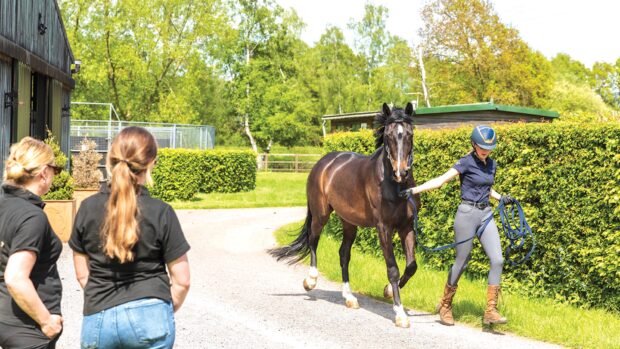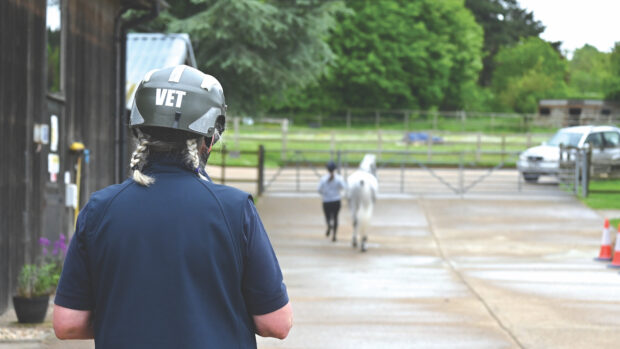If the time has come for you to part ways with your horse, deciding whether to loan or sell can be a difficult decision. Lottie Butler weighs up the options
Whatever the reason, whether a pony has been outgrown, your competitive ambitions don’t match your horse’s talents, or a change in circumstances has made keeping a horse difficult, deciding to sell your horse can be heart-breaking.
For this reason, many people opt to loan their horse. If well-thought out, it can be the ideal solution for both horse and rider. However, not every loan is a success, and reports of disputes, neglect and even theft are far too frequent.
Here are a few things to consider when weighing up your options:
How involved do you want to be?
If you sell your horse, it doesn’t necessarily mean you will never see them again. With the right buyer, you can stay in touch. However, the advantage of loaning your horse should be that you can ensure it always has a high level of care and will never be moved without your permission. Equine welfare charity Bransby Horses only offer loan homes. “We never sell or sign over care just in case people’s personal circumstances change,” says Ryan Rouse, re-homing coordinator. “We need to know that our horses are always going to be safe.”
What’s best for the horse?
Does your horse have the potential to do more? Or does he need a break from competition? Grace Moran, British Eventing rider representative in Scotland, has owned her 18-year-old eventer Porthill Rusty Nail since he was a foal. In that time, he has been on loan twice — first to event rider Caroline Powell, and subsequently to a young rider. “Caroline approached me about having Rusty as a reserve for the 2012 Olympics, and I wanted to give him the opportunity to compete at that level,” she explains. Last year, she loaned him to local rider Lauren Robb after deciding to retire him from top level competition. “As a young rider, I was loaned an advanced horse, who made me the rider I am, so I wanted another upcoming rider to benefit from Rusty’s experience.”
What about the future?
If you don’t think you will ever be able to take on the responsibility of your horse again — for financial or logistical reasons — selling to a long-term home can be the best option. A succession of different loan homes will be unsettling for any horse.
Continued below…
If you do loan…
Assess the home properly
“We try to get to know the loan home as much as possible — those who are welcoming and put the effort in are usually going to be the better homes,” says Ryan at Bransby Horses. Always visit the stables where your horse will be kept. You can also ask for references from livery yards to find out more about the loan owners — advice from a third party can be a good assessment of how much experience they have.
Know your terms
Even if you are loaning your horse to a friend, make sure you have worked out of the details — the level at which the horse is ridden at; who is responsible for the horse’s running costs, veterinary bills and insurance; who will organise routine dental checks and vaccinations; what will happen in the event of an accident and a notice period if the loan is to come to an end. “Our loan agreement outlines that the horses need the ideal level of care — things like tetanus vaccinations, a worming programme and regular shoeing,” says Ryan.
Be vigilant
There have been cases where horses taken on loan have been stolen or sold on, and it can be difficult to prove ownership. Be wary of such scams. Make sure the passport stays in your name, and always keep a photocopy.
If you sell…
Be upfront
Honesty is vital to make sure your horse goes to the right home. Make sure potential buyers are fully aware of any health issues or character quirks of your horse. You don’t want to sell your horse to a happy hacker if you know he thrives going out competing regularly, or to a hunting home if the horse has never seen hounds.
Advertise your horse for sale with Horse & Hound
Vet the buyer
If logistically possible, it is reasonable to request to see where your horse will be kept — it will help alleviate concerns you may have about selling. You can also look into loan-to-sell arrangements, whereby the horse goes on loan for a trial period before selling. With the right paperwork in place, this can be the perfect option to ensure horse and buyer are well-suited.
Look at wanted ads
Some buyers will know exactly what they’re looking for. Claire Harker bought her horse for use in the Light Cavalry, and knew exactly what she needed. “I was just trawling through thousands of adverts and not really knowing if the horse would do the job I needed,” she explains. “In the end, I did a ‘wanted’ advert that outlined exactly what I wanted, including height, colour and temperament. It saved a lot of time.”



